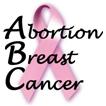British MP applauded, professor condemned
WOMEN'S GROUP APPLAUDS BRITISH MP's ABORTION-CANCER PROBE / CRITICIZES DR. STUART DONNAN's HYPOCRISY
The Coalition on Abortion/Breast Cancer welcomes the efforts of British MP Claire Curtis-Thomas and her colleagues who asked doctors to examine women's reproductive histories and the abortion-breast cancer (ABC) link within their patient populations. The coalition condemns the efforts of Manchester University Professor Stuart Donnan to disabuse women of the truth that abortion raises breast cancer risk. Donnan misled the BBC by saying "some studies" reported risk elevations, but others show abortion reduces risk. 1
"There is no biological evidence and no plausible biological explanation supporting a risk reduction," said Karen Malec, the coalition's president. "Scientists don't rely solely on epidemiological research when determining a cause and effect relationship. Such research merely establishes a statistical association. Donnan should bone up on the basics of science."
Scientists use six criteria before determining a causal relationship: 1) The exposure must precede the disease; 2) Most epidemiological research must show an association; 3) There must be statistically significant studies; 4) There must be a plausible biologic basis for the link; 5) There should be a dose effect; 6) There should be an increased risk of over 200%. 2 3 4 5 6 7
Each criterion has been met supporting an ABC link. On the other hand, Donnan can't meet these criteria to support his claim.
Donnan confused the effects of miscarriage and abortion, treating them as if they are one in the same. Scientists know that most miscarriages don't raise risk because estrogen levels don't surge in these abnormal pregnancies. However, estrogen overexposure beginning early in a normal pregnancy without the third trimester protection process is the culprit in the ABC link.
The British Medical Association's Journal of Epidemiology and Community Health published Brind et al. 1996, a review and meta-analysis of 23 studies, 18 of which reported risk elevations. 8 As the journal's editor-in-chief then, Donnan opined: "It will surely be agreed that open discussion of risks is vital and must include the people - in this case the women concerned. I believe that if you take a view (as I do), which is often called pro-choice, you need at the same time to have a view which might be called 'pro-information,' without excessive, paternalistic censorship (or interpretation) of the data." 9
"Some scientists and medical groups sold out to the tobacco industry in the 1950's too," observed Mrs. Malec. "The most notable example was the highly regarded Clarence 'Pete' Little, formerly a leader of the U.S. National Cancer Institute and the American Cancer Society."
The Coalition on Abortion/Breast Cancer is an international women's organization founded to protect the health and save the lives of women by educating and providing information on abortion as a risk factor for breast cancer.
- 1. "MPs launch abortion-cancer probe," BBC News, January 22, 2004. Available at http://news.bbc.co.uk/1/hi/health/3419329.stm.
- 2. Malec, K. "The abortion-breast cancer link: How politics trumped science and informed consent." Journal of American Physicians and Surgeons (Summer 2003) Vol. 8, No. 2. P. 41-45.
- 3. Russo & Russo (1980) Am J Pathol 100(2):497-512.
- 4. Melbye et al. (1999) Br J Cancer 80(3-4):609-13.
- 5. Beral V (July 20, 2002) The Lancet 360:187-95.
- 6. Melbye et al. (1997) N Engl J Med 336(2):81-5. 3.
- 7. Daling et al. (1994) J Natl Cancer Inst 86(21):1584-92.
- 8. Brind et al. (1996) J Epidemiol Community Health 50:481-96.
- 9. Donnan S. Editorial (1996) J Epidemiol Community Health



